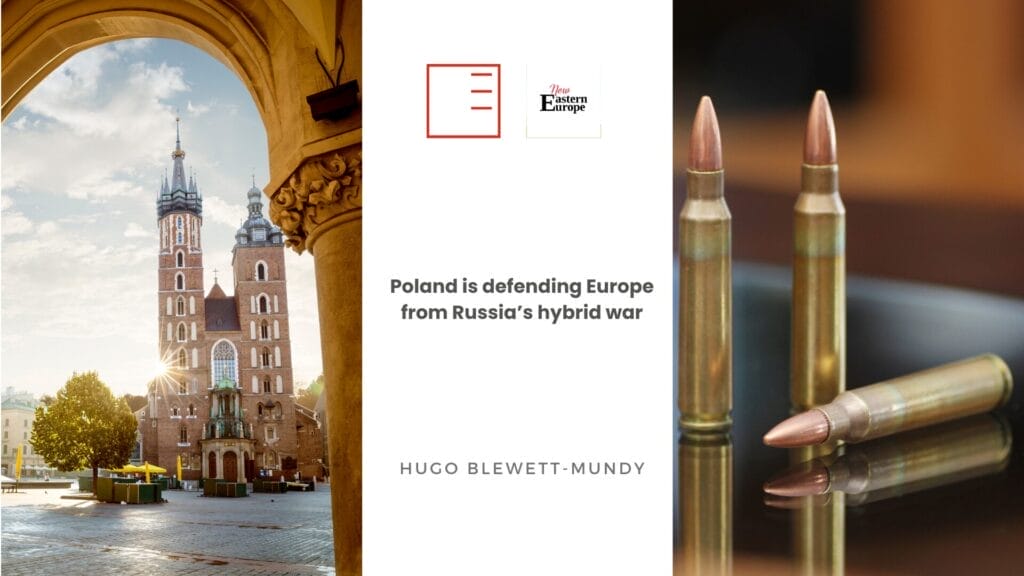
New Eastern Europe | Poland is defending Europe from Russia’s hybrid war
More info 4. 4. 2025
4. 4. 2025
EU cooperation with Warsaw must strengthen as Russia’s systemic threat becomes clear. Research associate at EUROPEUM Institute Hugo Blewett-Mundy commented for New Eastern Europe
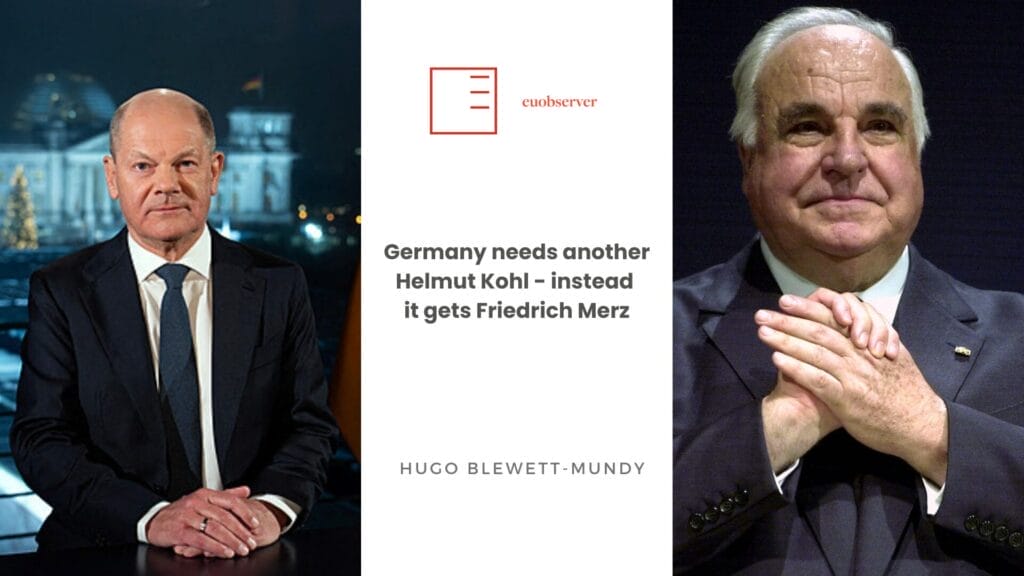
EUobserver | Germany needs another Helmut Kohl - instead it gets Friedrich Merz
More info 11. 2. 2025
11. 2. 2025
Germany today faces similar existential geopolitical challenges. Vladimir Putin has launched the first interstate war in Europe and frequently threatens nuclear conflict with the West. The return of Russian imperialism on a grand scale in 2022 has prompted a radical reorientation of German foreign policy. Research associate at EUROPEUM Institute Hugo Blewett-Mundy commented for EUobserver.

EUobserver | What does the new EU-Japan defence partnership actually mean?
More info 10. 1. 2025
10. 1. 2025
In November last year, Josep Borrell struck a deal with Japanese Foreign Minister Takeshi Iwaya, which he described as "historic and very timely", as one of his final steps as EU foreign policy chief. The ground-breaking agreement struck in Tokyo coincides with a new strategic partnership agreement between Japan and the EU, which came into force on 1 January 2025. EUROPEUM Institute Associate Research Fellow Hugo Blewett-Mundy commented for EUobsever.

Policy Paper | Czechia in NATO at 25
More info 19. 12. 2024
19. 12. 2024
As the Czech Republic celebrated 25 years of NATO membership, this paper examined the country’s journey within the Alliance—its achievements, challenges, and growing responsibilities in collective security. From its early integration to its evolving strategic role, the Czech Republic contributed to NATO’s missions, strengthened transatlantic ties, and adapted to new security threats. Part of the project “Celebrating 25 Years of Czech Republic’s NATO Accession,” this analysis reflected on key milestones, policy developments, and the broader significance of NATO membership for the nation’s defense, diplomacy, and global engagement.
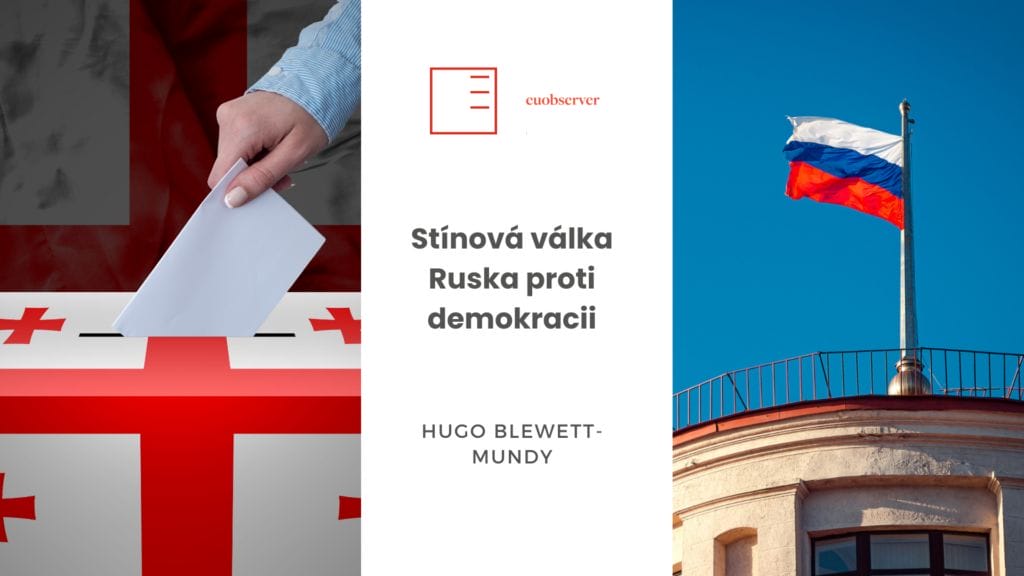
EUobserver | Russia's 'shadow war' on democracy
More info 28. 10. 2024
28. 10. 2024
The Soviet Union was far from a superpower when the Cold War began. Faced with unmatched American power, Stalin chose to pursue a cautious approach instead of direct military confrontation to exert Soviet influence. While Russia today poses a completely different threat from its Soviet predecessor, Vladimir Putin does share similar geopolitical challenges. Read the commentary of EUROPEUM Institute Associate Research Fellow Hugo Blewett-Mundy for EUobserver.
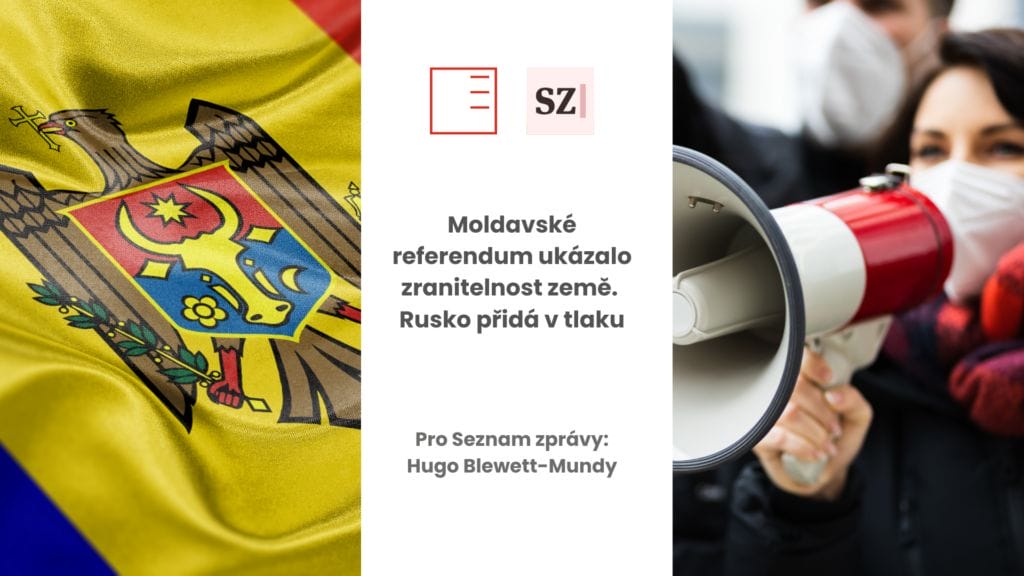
Seznam Zprávy | The Moldovan referendum showed the vulnerability of the country. Russia will add to the pressure
More info 22. 10. 2024
22. 10. 2024
Last year, Moldovan intelligence services detected Russian funding worth at least half a billion Czech crowns, which was used to stop the prosecution of illegal political activities, incitement to anti-government protests and corruption. EUROPEUM Institute non-resident associate research fellow Hugo Blewett-Mundy wrote a commentary for Seznam Zprávy.
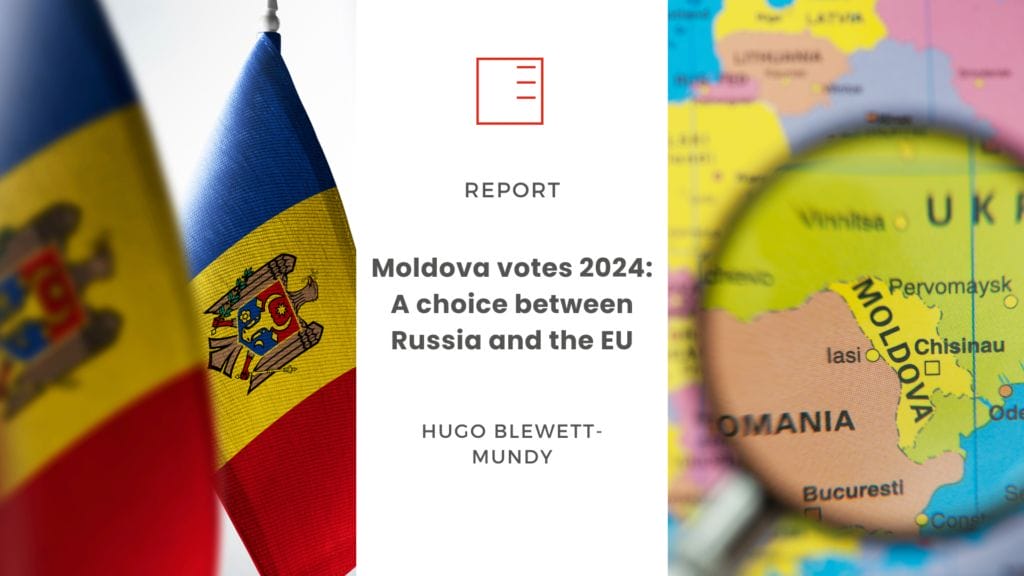
Report | Moldova votes 2024: A choice between Russia and the EU
More info 18. 10. 2024
18. 10. 2024
Moldova stands at a critical juncture that will determine its position within Europe. In the elections on Sunday, the incumbent president Maia Sandu is seeking a second term and a positive result in the EU accession referendum to reaffirm her country’s path towards Europe. But the hybrid threat facing Moldova from Russia will not dissipate, particularly as next year’s pivotal parliamentary elections approach in the tiny former Soviet republic. Hugo Blewett-Mundy, a non-resident associate research fellow from EUROPEUM, analyses the current situation in Moldova and provides an outlook for the country in 2025.
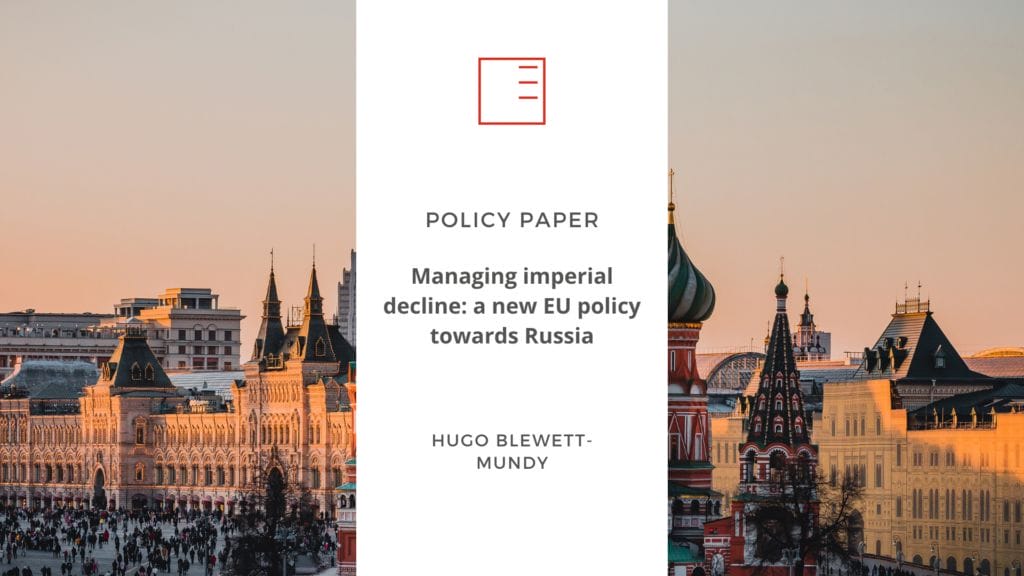
Policy paper | Managing imperial decline: a new EU policy towards Russia
More info 16. 7. 2024
16. 7. 2024
Russia's full-scale invasion of Ukraine in February 2022 has shattered the post-Cold War international order built upon East-West interdependence and cooperation. The European Union (EU) - which had tried to pursue a strategic relationship with Russia after the collapse of the Soviet Union in 1991 - must now adapt to the geopolitical reality of Russian neo-revisionism. Hugo Blewett-Mundy, an Associate Research Fellow at EUROPEUM Institute, identifies four areas where the EU's policy towards Russia could evolve to confront this emerging security situation in Europe.
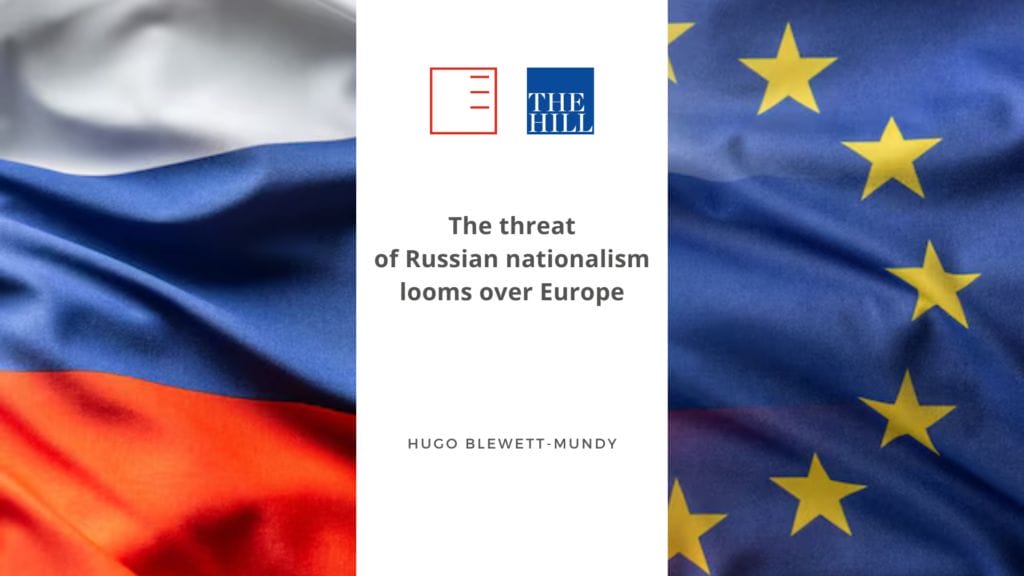
The Hill | The threat of Russian nationalism looms over Europe
More info 19. 5. 2024
19. 5. 2024
The threat of Russian nationalism poses a serious danger to Europe, as emphasized by the EU's High Representative for Foreign Affairs and Security Policy Josep Borrell in his speech in April. Russia is attempting to reassert its influence, particularly through its war against Ukraine, which undermines European security. What impact does the reemergence of Russian nationalism, supported by China, have on European security, and how should the West respond to this geopolitical reality? In his commentary for the American news website The Hill, Hugo Blewett-Mundy, an external collaborator and research fellow at EUROPEUM Institute, addresses this topic.
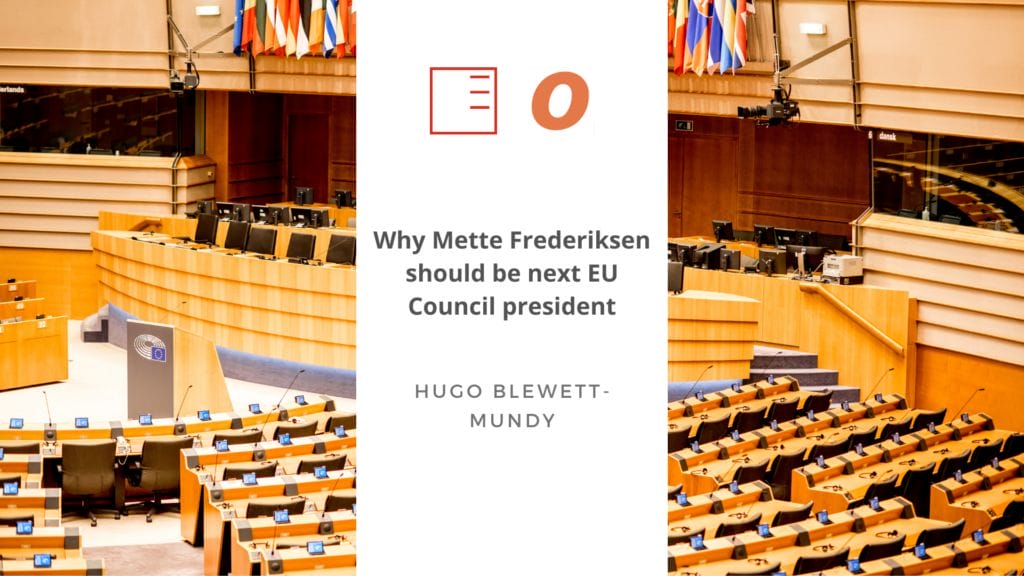
EUobserver | Why Mette Frederiksen should be next EU Council President
More info 25. 3. 2024
25. 3. 2024
The end of Charles Michel's mandate as president of the European Council this year comes at a time of seismic — and consequential — geopolitical shifts. Hugo Blewett-Mundy, a non-resident associate research fellow from the EUROPEUM Institute for European Policy, explains why he views the current Danish Prime Minister Mette Frederiksen as the best fit for the position soon to be vacant.
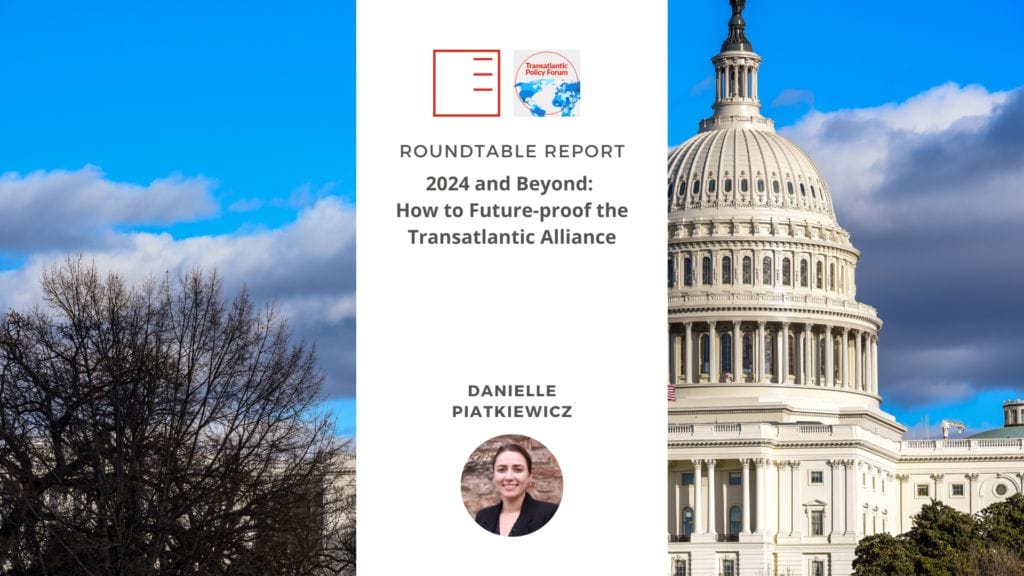
Policy Paper | 2024 and Beyond: How to Future-proof the Transatlantic Alliance
More info 26. 10. 2023
26. 10. 2023
In their analysis, researchers Danielle Piatkiewicz and Hugo Blewett-Mundy delve into the most recent obstacles confronting transatlantic security, particularly within the backdrop of Russia's war against Ukraine. They emphasize the imperative of addressing geopolitical challenges while simultaneously striving for strategic independence in economic and energy matters, all the while preserving the common democratic principles that unite these allies. The paper also anticipates the upcoming hurdles in 2024, including a significant election year and the necessity for the transatlantic relationship to fortify its determination for the future.